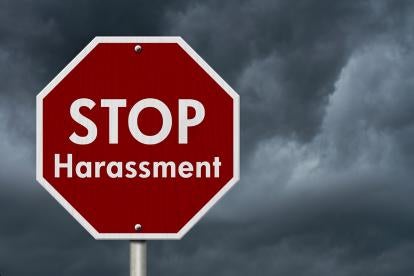On May 20, 2020, the California Department of Fair Employment and Housing (DFEH) published an online harassment prevention training module designed to meet a recent California mandate that nonsupervisory employees receive one hour of harassment prevention training every two years.
California’s harassment prevention training mandate was expanded in 2018 with the enactment of Senate Bill (SB) 1343. That bill added a requirement that all California employers with five or more employees provide one hour of harassment prevention training to nonsupervisors every two years, beginning no later than January 1, 2020. The bill also required the DFEH to publish a training video. In August 2019, SB 778 postponed the nonsupervisory training compliance deadline until January 1, 2021.
With seven months remaining until the current compliance deadline, employers may now direct their employees to participate in the free online training. The training can be viewed on a standard web browser. Trainees must click through a series of screens, each displaying text that is read by narrators. Trainees will need to complete the one-hour training in one sitting. There is no option to save progress and return to training at another time. At the completion of the training, a certificate will be offered that can be filled in and printed, or digitally saved for the employer’s records.
Harassment Prevention Training
The training begins with statistics regarding the prevalence of sexual harassment and then transitions to a theme of respect in the workplace. The presentation identifies types of inappropriate behavior ranging from rude behavior and workplace bullying to illegal conduct such as sexual harassment or gender discrimination.
The online training encourages participants to object to offensive workplace behavior and make complaints to management or government agencies. The presentation encourages bystanders to support victims and report misconduct.
Interspersed throughout the hour-long program are several hypothetical scenarios featuring a diverse cast of fictional employees and a variety of problematic conduct, such as unwanted romantic overtures, offensive sexual banter, and gender discrimination. Illustrations also address same-sex harassment, workplace romance, and bullying.
The training includes four video segments designed to elucidate various issues in context. The first segment dramatizes a sexually harassing encounter instigated by a supervisor and directed toward an assistant. The second segment portrays sexual harassment between coworkers.
A third video segment educates viewers on issues related to gender identity, gender expression, and sexual orientation.
The final video segment portrays a manager who verbally berates and belittles a subordinate employee for poor work product. The segment focuses on the problem of workplace bullying.
Peppered throughout the training are numerous true/false quizzes, though apparently no score is kept, as participants are immediately informed of the correct answers.
The training closes by reviewing options available to employees who may have experienced harassment, including submitting complaints to company management or to government agencies such as the DFEH and U.S. Equal Employment Opportunity Commission. The training also reminds employees that the law protects them from retaliation.
The training is available in several languages besides English, including Spanish, Korean, Chinese, Vietnamese, and Tagalog.
The amended harassment prevention training law tasks the DFEH with developing a two-hour supervisory training module, but as of yet, no such resource is available. The agency’s website states that this training is “coming soon.”
Practical Tips
California employers may want to consider the following to ensure harassment prevention training and policies are current and in compliance with legal requirements:
-
Reviewing the DFEH training module to determine its suitability for nonsupervisory employees
-
Supplementing the DFEH training with instructions on how to register complaints (e.g., contact information for the human resources department, complaint hotline, or other reporting avenue)
-
Ensuring that all nonsupervisory California employees have received harassment prevention training (either with the DFEH module or a comparable program) by January 1, 2021
-
Maintaining compliance records and devising a training schedule to make sure each employee receives the training every two years




 i
i


